
Far to the East, in the territory of the ‘Oponian’ (meaning ‘Japanese’) kingdom, there is a country in which people live on seventy large and countless small islands. They are ruled by a patriarch and four metropolitan priests. "They have no secular court; spiritual authorities rule the peoples and all people." So wrote monk Mark of the Topozersky monastery (in the Arkhangelsk province) in the beginning of 19th century, who allegedly himself had been in Belovodye (‘The White Water Land’) – that’s how this wondrous land was called. His text in question was called ‘The Traveler’.
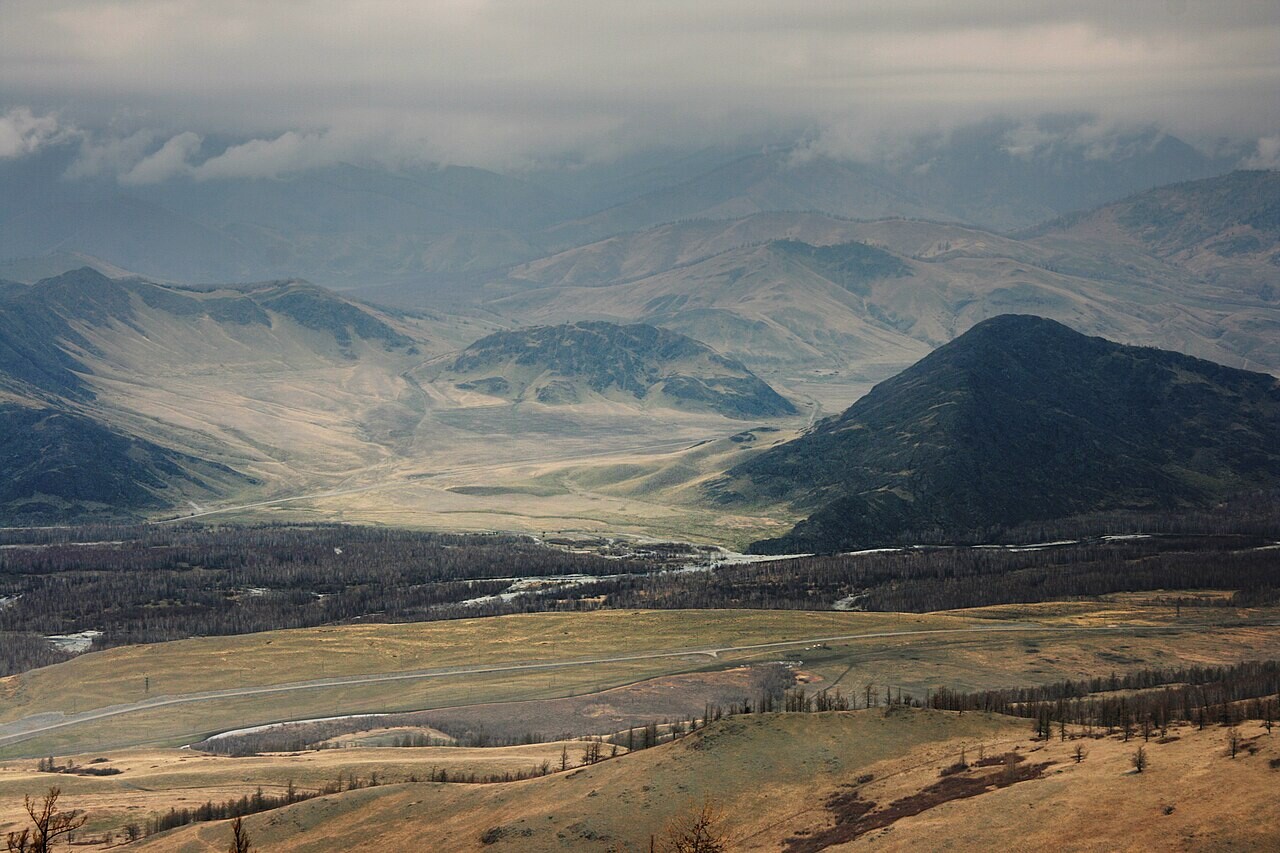
The Bukhtarma river and its surroundings – the lands that were called Belovodye
Dmitry A. Mottl (CC BY-SA)The monk described this place as a real paradise on earth. "In this place, there is no crime and other things contrary to the law." And although "during winter, there are extraordinary frosts with earthquakes, and thunderstorms", the country of Belovodye was rich and fertile: "All kinds of earthly fruits are there; grapes and rice are born; is has innumerable gold and silver deposits, while precious stones and expensive beads are aplenty." Belovodye was described as a closed country, which didn’t fight with anyone: "They do not let anyone into their land and have no war with anyone."
Belovodye was inhabited by exiles of faith – according to monk Mark, it was founded by Assyrian Christians, who fled there "from the persecution of Roman heretics". "Many people were sent by ships via the Arctic Sea and overland route" and then "founded 170 churches of the Assyrian language" in Belovodye. To stay in Belovodye, those who got there needed to be baptized for a second time – but, after that, it was forbidden to leave. According to Mark, he did not do it, but "two monks who were with me agreed to stay forever: they received the holy baptism".
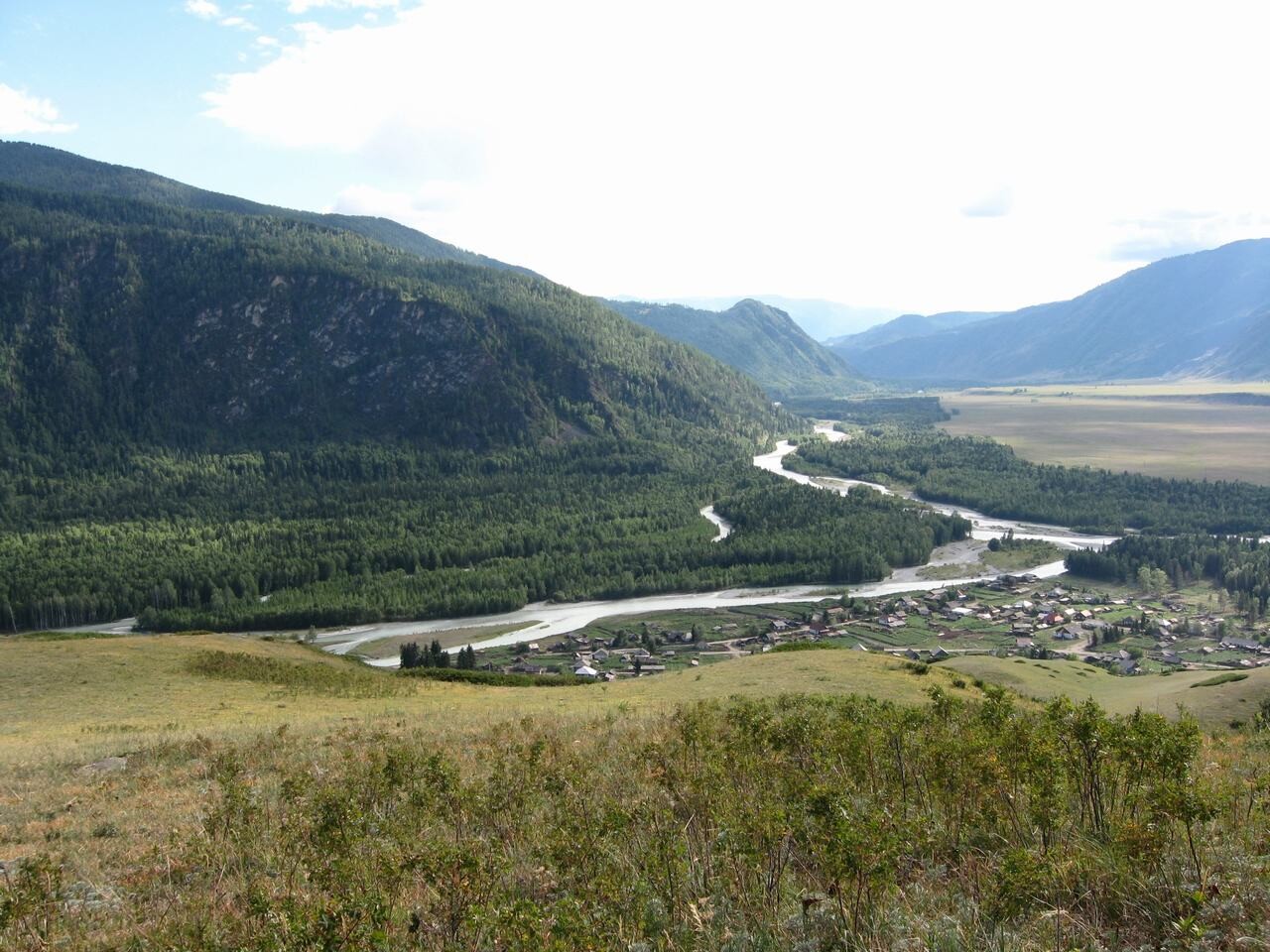
Rivers Bukhtarma and Berel
alt-fox (CC BY-SA)The legend about Belovodye appeared, most likely, in the second half of the 18th century among Russian Old Believers and was passed on orally. In ‘The Traveler’, only one of the variants of the legend was recorded. And Belovodye has a geographical reference.
In the second half of the 17th century, after the Schism of the Russian Church (‘Raskol’), the Old Believers who did not want to deal with ‘Nikonians’ fled to different parts of Russia. The most desperate fled beyond the Siberian fortified line, built to protect Russia from nomads – far beyond the present-day Novokuznetsk and Semipalatinsk and further to the Altai Mountains.
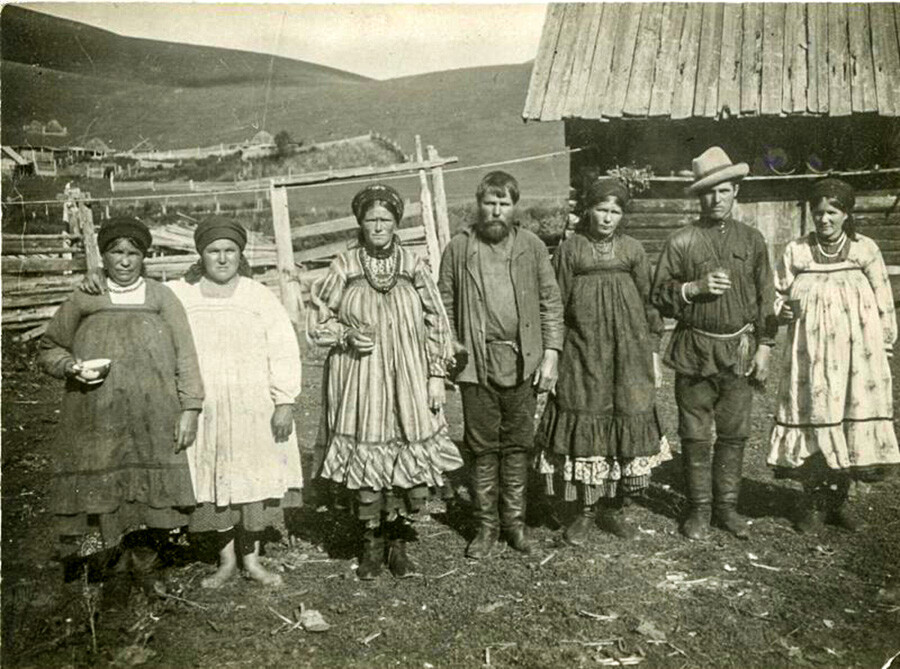
The descendants of the Russian "stone people" of the Altai, inhabitants of Belovodye
Blomkvist, Grinkova, 1927Russians who settled in inaccessible places along the Bukhtarma River and in the Uimon Steppe in Altai began to be known as ‘stone people’, i.e., mountaineers, because ‘stone’ in the language of those times meant ‘mountain’. Nizhny Novgorod Old Believers formed the basis of the ‘stone people’, but their community was joined by natives from various regions, who reached the valley of the Bukhtarma River.
The region began to be settled in the 1720s. There was really no government authority there – the area lay between the borders of Russia and China. The population hunted, engaged in agriculture, fished, extracted honey, conducted exchange trade with neighbors – Kazakhs, Altaians, Chinese. In the 1790s, when the Bukhtarma region began to be annexed to Russia and taxed, there were about 17 settlements there.
By the beginning of the 19th century, the free life of the inhabitants of the Bukhtarma banks was over. Since 1796, all the inhabitants of Bukhtarma began to pay a monetary tax. Many of them moved further east and north, to the Argut and Katun rivers.
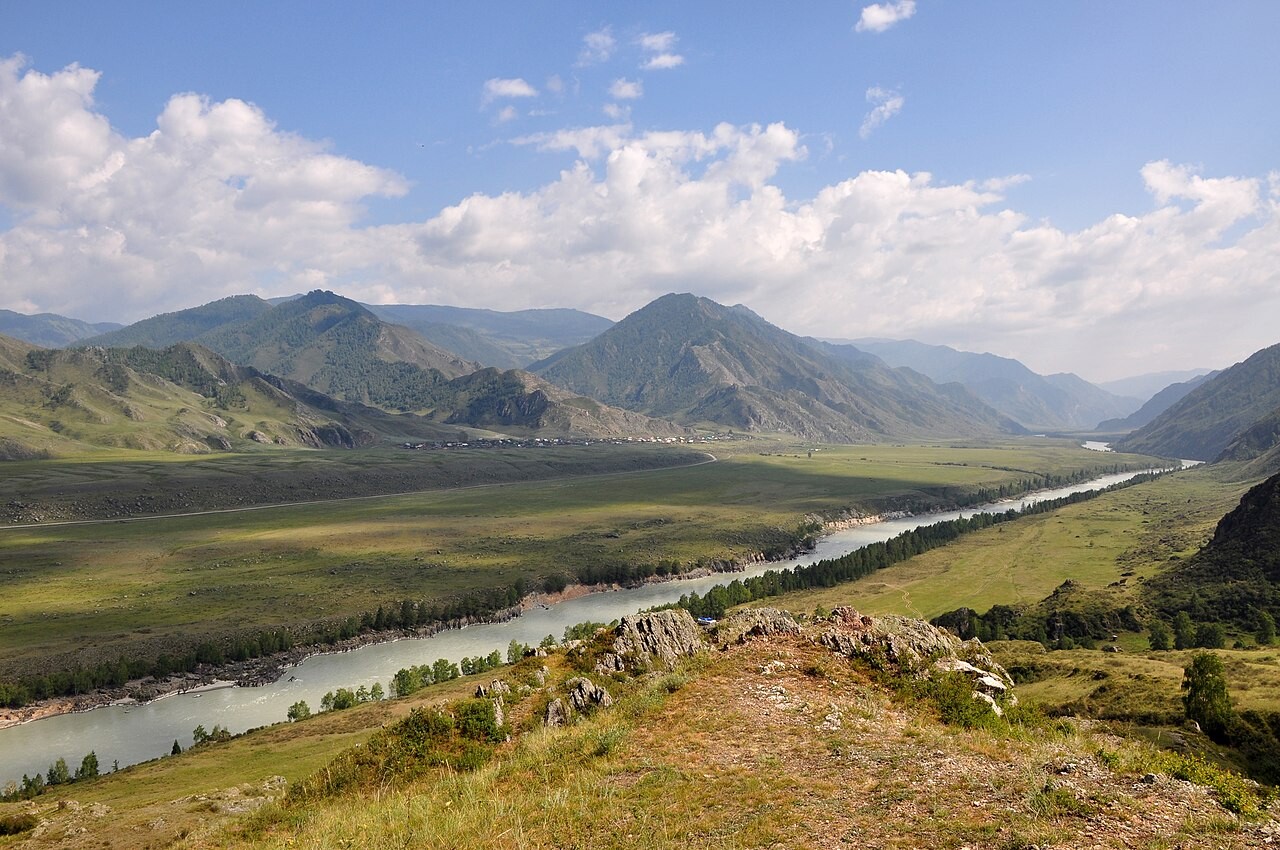
River Katun, where many Belovodye people moved in late 18th century
Malupasic (CC BY-SA)So, Belovodye really did exist – the legend turned out to be true! After all, it was possible to get to the Bukhtarma River – and some people, indeed, managed to do it in the 18th century.
When, at the end of the 18th century, tsarist authorities came to the lands of the ‘stone people’, the most devout of them moved further east and again got lost in the mountains. Apparently, this "exodus" gave new life to the legend. Besides, if someone got to the banks of the Bukhtarma River, these places were usually not accepted as the "real" Belovodye – after all, there were already taxes and secular power there. So, it was only natural to search further.
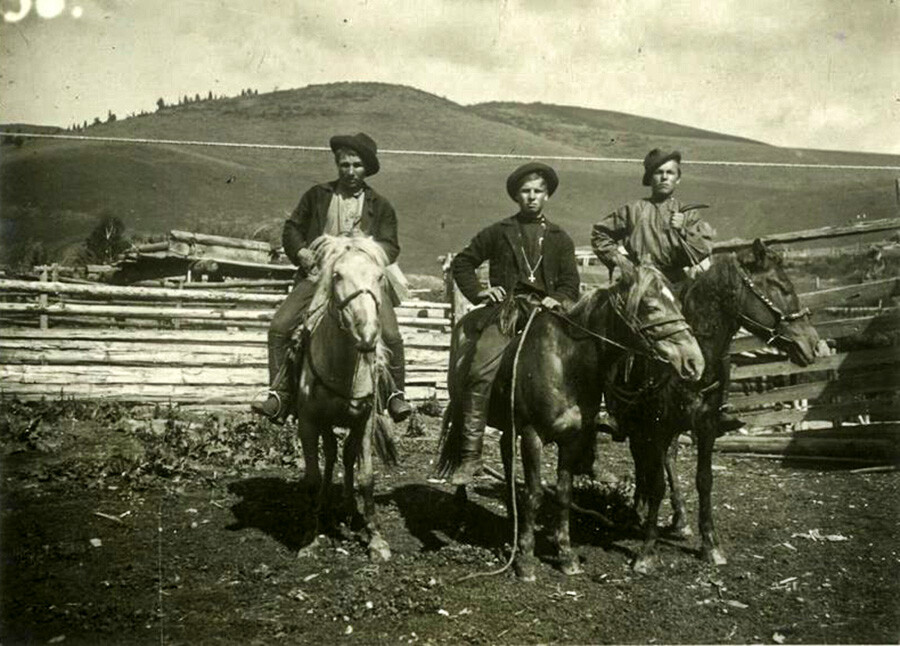
The Russian "stone people" of the Altai, inhabitants of Belovodye
Blomkvist, Grinkova, 1927Therefore, in the 19th century, with the help of ‘The Traveler’, which was distributed in handwritten copies among the Old Believers, the legend of Belovodye became even more popular.
In 1807, in Tomsk, a peasant named Dementiy Bobylev went to the police and said that he knew of a great secret, which he would reveal only in Moscow. When he was brought to Moscow, Bobylev said that he had been in Belovodye and could show where it is, that several hundred thousand people lived there and they must be made citizens of the empire. Bobylev received 150 rubles in gold for the information from the authorities and promised to participate in the expedition to Belovodye, but, instead, disappeared with the money.
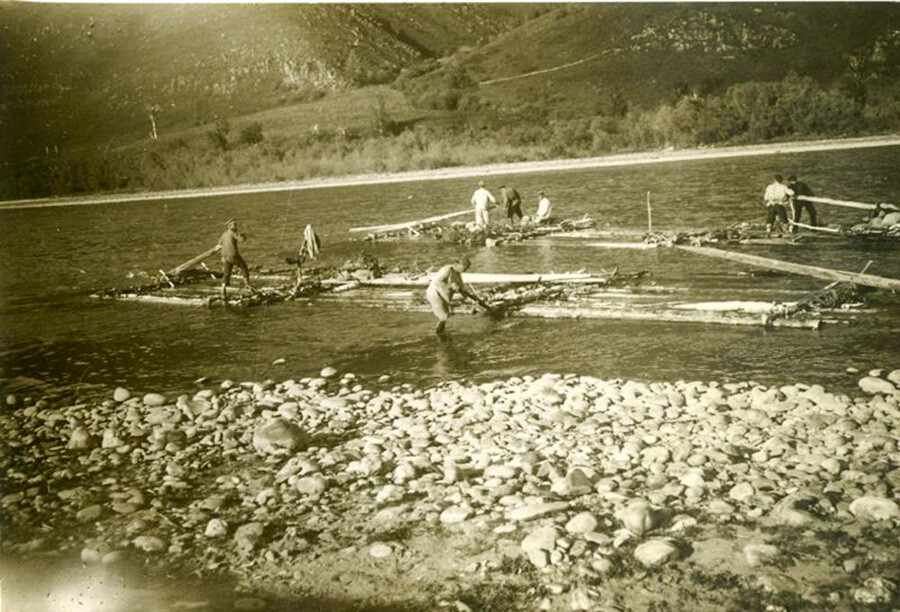
The Russian "stone people" of the Altai, inhabitants of Belovodye
Blomkvist, Grinkova, 1927This is only one story. During the 19th century in search of Belovodye, groups of peasants from Perm, Orenburg, Nizhny Novgorod provinces fled to Siberia and further. They often searched for Belovodye in the forests north of Tomsk – quite the opposite to where it really was, south of Tomsk. In the 1840s, some Altai masons went to China in search of Belovodye. They also searched for it in the present-day Republic of Tyva.
In the 1870s – 1890s, a fraudster by the name of Anton Pikulsky, but who called himself Archbishop Arkady Belovodsky, deceived the Far Eastern Old Believers, convincing them that he was a real Old Orthodox priest, ordained in Belovodye itself.
The legend remains known to this day. However, modern researchers were twice surprised when they interviewed Old Believers in Primorye, descendants of the Bukhtarma ‘stone people’. First, they were surprised that the legend was still alive. But, the researchers were even more surprised by the fact that the descendants of the ‘stone people’ spoke about Belovodye as "a righteous, pious land”, but spoke about it with obvious skepticism.
If using any of Russia Beyond's content, partly or in full, always provide an active hyperlink to the original material.
Subscribe
to our newsletter!
Get the week's best stories straight to your inbox